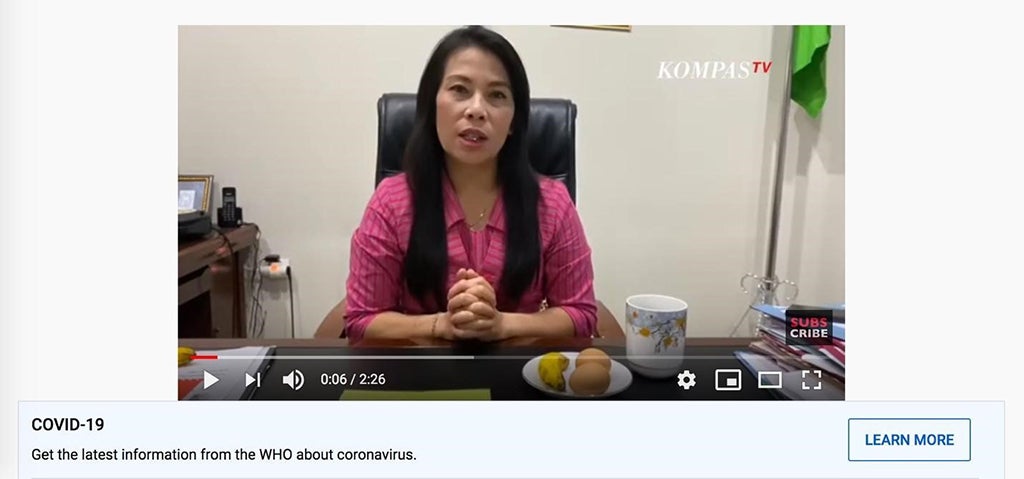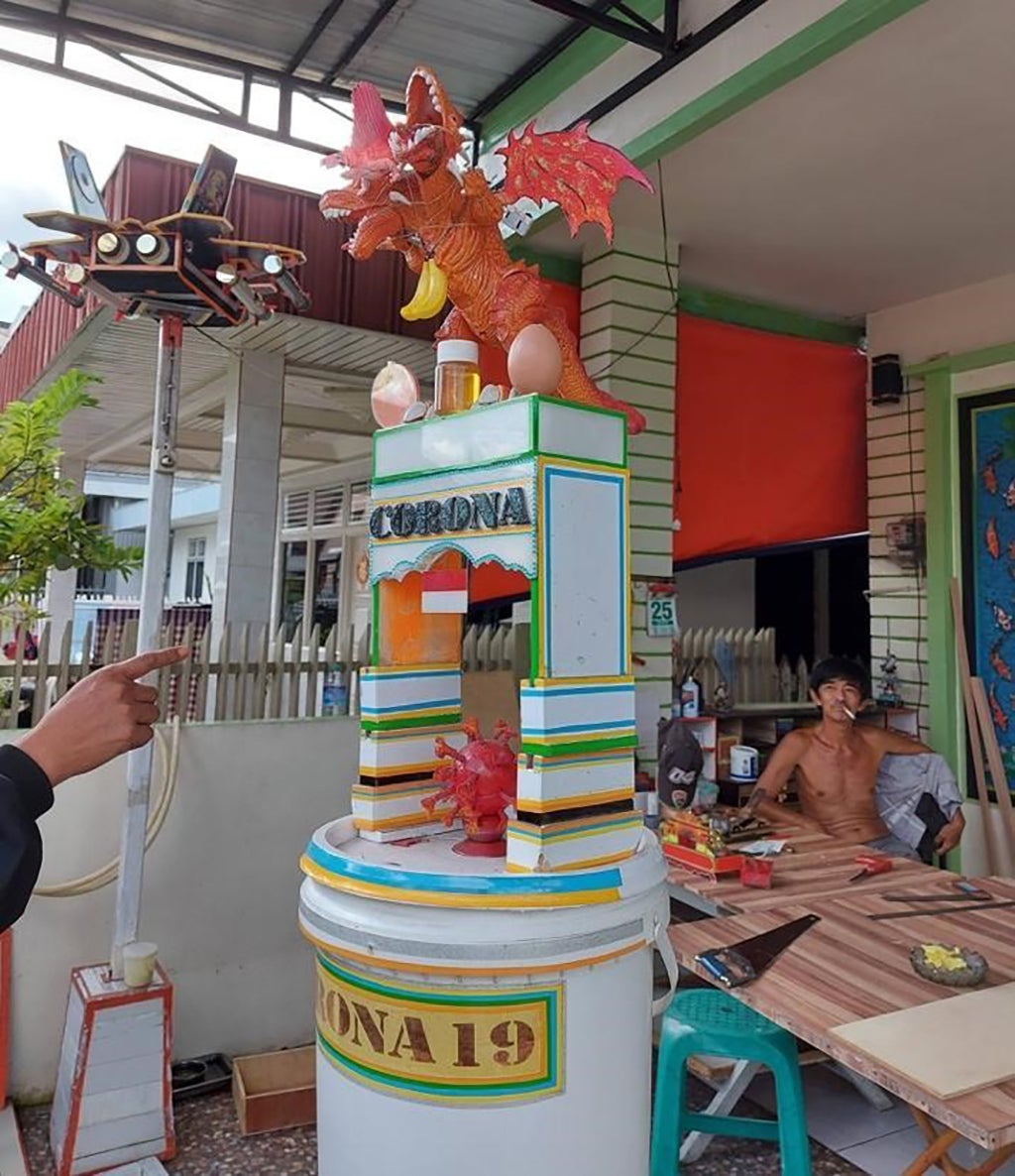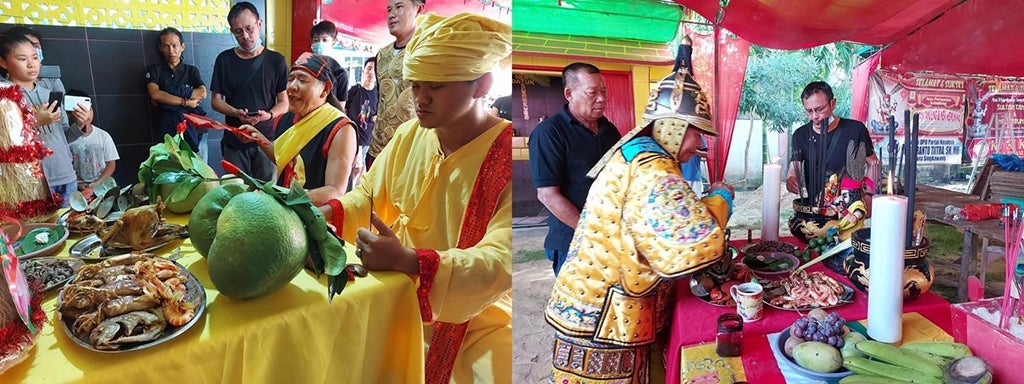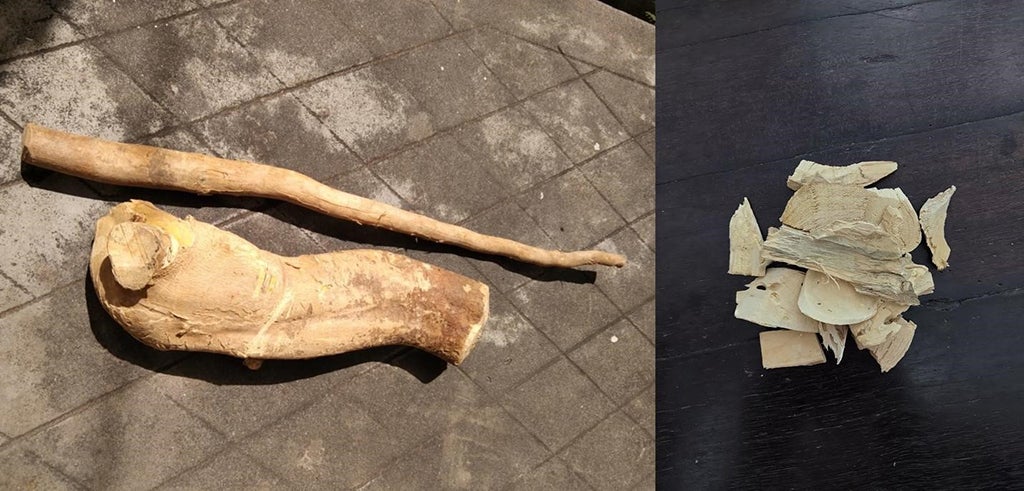Convergence and Divergence in Health Messages: Spirit-Medium Advice about COVID-19
contributed by Emily Hertzman, 28 December 2020
On September 3rd, 2020, Thjia Chui Mei, the mayor of Singkawang, West Kalimantan announced via a video on her Instagram account that she and her family had tested positive for COVID-19. In a series of videos that followed which were uploaded to YouTube, she documented her time in quarantine, explaining how she kept herself healthy and recovered quickly. Her health regime included eating boiled eggs and bananas and drinking tea daily.

Figure 1. Screenshot of Mayor Thjia Chui Mei’s public announcement of COVID-19 diagnosis
Her videos, as well as other videos on YouTube that make reference to COVID-19, contain a banner ad at the bottom which links to the World Health Organization (WHO) official website, providing the most up-to-date scientific information about COVID-19. This ad is the result of a collaboration between YouTube and the WHO to counter the proliferation of inaccurate information about the disease, such as misinformation about transmission and untested cures.
The need for such an intervention is well-intentioned and highly necessary at a time when social media platforms allow for and exacerbate the rapid spread of information, including “fake news” or “hoaxes”. This intervention is particularly important especially in a place like Singkawang, Indonesia, where there is a proliferation of spirit-medium healing which involves non-standardized and idiosyncratic curing practices. A significant subset of the local population regularly visit spirit-mediums for healing and see them not merely as a source of moral and spiritual guidance, but also as a source of health information. Furthermore, diagnosis of physical health conditions is often intertwined with underlying moral and spiritual conditions, making it difficult to mark a distinction amongst these aspects of health.

Figure 2. A decoration in a resident’s front yard, depicting ‘Corona 19’ in the shape of a three-headed dragon, with Thjia Chui Mei’s three cures (eggs, bananas and tea) placed like offering on the top
During healing consultations, spirit-mediums invite their patron god(s) to enter them and while under possession answer questions from followers who have come for advice or healing. Based on years of documenting these consultations (including during the COVID-19 pandemic) I am struck by the ways that the messages from the possessing gods both converge with and diverge from mainstream public health messages from the WHO and the Ministry of Health.

Figure 3. Screenshot of a video of a spirit-medium consultation about COVID-19. “Singkawang city of a thousand temples. Fa San Kiung Temple. Combat Covid 19 by following health protocol”
On November 26th, 2020, I visited the temple Sam Chin Fab Jan of Lay Djat Kong and his son, Suriadi Amien, for an official opening ceremony in which three patron deities, Datuk Nek Kemuning, Datuk Sungkung and Sultan Tanjung were being moved from inside the temple to a new purpose-built altar on the same grounds. After the statues were activated, moved, and surrounded by offerings, Lay Djat Kong, under the possession of Datuk Sungkung, addressed the small group of attendees.

Figure 4. (Left) Lay Djat Kong under possession by Datuk Sungkung with his son Suriadi Amien under possession by Sultan Tanjung. (Right) Lay Djat Kong under possession by his primary patron deity, Ci Mi Sen Kiun
“Grandchildren,” he said. “Have you eaten already?” To which we responded in unison “yes, already.” He then proceeded to explain that while there is a pandemic right now, there is no need to worry as it is not serious. If we follow the government heath protocol, and maintain our health we will all be fine. Even if one gets sick, one can recover quickly. He predicts it will be over within three months and tells everyone to sleep enough and eat properly to maintain their health. “Don’t worry,” he assures us.
This advice mostly aligns with public health messages regarding COVID-19 and focuses on physical health. I have the opportunity to ask a question: “According to Datuk Sungkung, where does COVID-19 come from?” He responds by explaining that the virus is originally from animals, and it jumps from species to species and then finally to humans, an explanation which also corresponds to the WHO’s understanding of the origins of the novel coronavirus.
Then the discussion begins to diverge from mainstream scientific knowledge to take on a moral dimension. The most important thing in life is not riches, he advises, but to be true. To maintain a healthy life, you must be an honest person. Our environment is surrounded by evil spirits, but we can resist them if we are honest and true. In addition, one should endeavour to protect our environment, eat healthy food, sleep regularly and do good. “Don’t look around at other people who are richer or poorer. The rich after all cannot see the door of heaven”, he explains. “Just be honest and don’t gamble. Gambling leads to problems.”
Finally, he adds his own special idiosyncratic cure. He tells us that in order to be healthy and avoid COVID-19 we would need to replace our morning coffee or tea with one herbal remedy: the Tan Pian Kiu Cu (also referred to as Tongkat Ali or Pasak Bumi, and most widely known as a male potency enhancer or aphrodisiac.) He recommends that we must take one stalk and one root of the plant to make into a bitter tea to drink daily. That is all we need and every household should have it. “Don’t forget it”, he insists.

Figure 5. Tan Pian Kiu Cu purchased at a local Chinese medicine shop for 3000Rp
The convergence of messages from spirit-mediums with messages from mainstream public health authorities surrounding COVID-19 can be interpreted as a form of respect or performance of deference to the body of scientific knowledge which is hegemonic in the governmental health system and temporary regulatory mechanisms enforcing social control during the pandemic. To contradict the basic principles of hygiene or speak against the need for maintaining the 3M protocols (wearing a mask, maintaining distance and washing hands) would be risky and definitely position the individual to receive unwanted negative attention from the authorities.
However, the consultations that happen during COVID-19, much like the mayor’s video updates from quarantine, also offer an opportunity to demonstrate one’s personal or specialist knowledge - whether it be moral, magical, or pragmatic. They serve as an important social interaction to reassure the public of the stability of the social and physical situation. Spirit-mediums not only use this moment to reveal their own expertise in understanding the human condition, but also provide unique viewpoints, including reminders about both proper moral and health practice. While these consultations may include untested folk and herbal remedies - notably those claiming to cure COVID-19 - nevertheless the focus is primarily on helping members of the local community interpret the existential conditions of life, made more stressful by the current global COVID-19 pandemic.
Disclaimer: The views and opinions expressed in this article are those of the authors and do not necessarily reflect the position of the blog editorial team or the Asia Research Institute.
South Asia | Southeast Asia | East Asia | Other Places | Hinduism | Buddhism | Islam | Christianity | Other Religions
Emily Hertzman is a sociocultural anthropologist whose research focuses on Chinese Indonesian mobilities and identities. She received a B.A and M.A. from the University of British Columbia and a Ph.D. from the University of Toronto (2016). She will be joining the Asia Research Institute in the Religion and Globalization cluster at the National University of Singapore as a Research Fellow in 2021.

